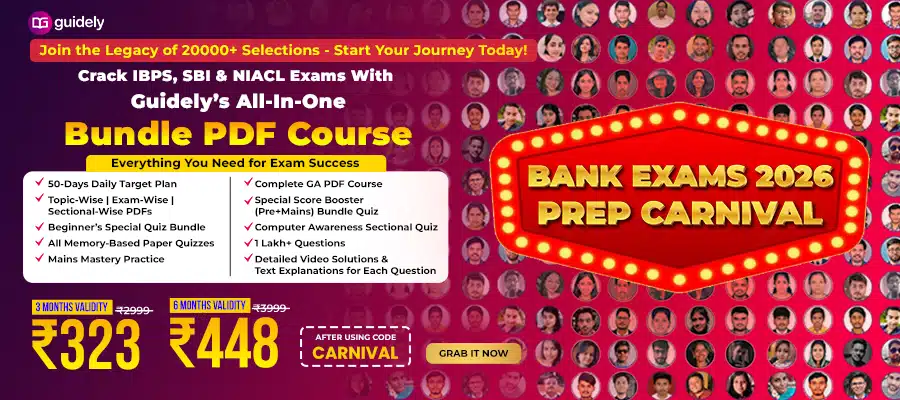Dear Aspirants, Here we have given the Important RRB ALP & Technicians Exam 2018 Practice Test Papers. Candidates those who are preparing for RRB ALP 2018 can practice these questions to get more confidence to Crack RRB 2018 Examination.
[WpProQuiz 3033]Click “Start Quiz” to attend these Questions and view Explanation
1) Which was an Act of the Parliament of Great Britain intended to overhaul the management of the East India Company’s rule in India?
a) Government of India act 1858
b) Charter Act 1833
c) Pits India Act 1784
d) The Regulating Act 1773
2) Which incident in know as First war of Independence by the Indian?
a) Rowlatt Satyagraha
b) Non-Cooperation Movement
c) Sepoy Mutiny
d) The Khilafat movement
3) Which part of the Indian constitution deals with the directive principle of the state policy?
a) Part II
b) Part I
c) Part III
d) Part IV
4) How many fundamental duties are in the Indian constitution?
a) 9
b) 11
c) 12
d) 20
5) Who can call the joint session of the two houses of the parliament?
a) President
b) Prime Minister
c) LokSabha Speaker
d) Vice-President
6) What is ‘Zero Hour’?
a) When the proposals of the opposition are raised
b) When matters of utmost importance are raised
c) Interval between the morning and afternoon sessions
d) When a money bill is introduced in lokSabha
7) The English crown is an example of
a) Nominated executive
b) Nominal executive
c) Quasi-real executive
d) Real executive
8) Who is the Governor of Odisha?
a) GaneshiLal
b) Naveen Patnaik
c) Satya Pal Malik
d) V. P. Singh Badnore
9) Who is the chairman of UPSC?
a) D.P. Singh
b) K.Arulmozhi
c) ArvindSaxena
d) Vinay Mittal
10) How many languages have recognized by the Constitution?
a) 24
b) 22
c) 18
d) 15
Answers :
1). Answer: d)
Regulating Act of 1773 was the first landmark in the constitutional development of India. It was the first parliamentary ratification and authorization defining the powers and authority of the East India Company with respect to its Indian possessions.
2). Answer: c)
The Indian Rebellion of 1857 was a major uprising in India between 1857– 58 against the rule of the British East India Company, which functioned as a sovereign power on behalf of the British Crown. The event is known by many names, including the Sepoy Mutiny, the Indian Mutiny, the Great Rebellion, the Revolt of 1857, the Indian Insurrection, and India’s First War of Independence.
3). Answer: d)
The Fundamental Duties are defined as the moral obligations of all citizens to help promote a spirit of patriotism and to uphold the unity of India. These duties, set out in Part IV–A of the Constitution, concern individuals and the nation.
4). Answer: c)
Originally ten in number, the Fundamental Duties were increased to eleven by the 86th Amendment in 2002, which added a duty on every parent or guardian to ensure that their child or ward was provided opportunities for education between the ages of six and fourteen years.
5). Answer: a)
After the President notifies his intention to summon a joint sitting of the two Houses, none of the Houses can proceed further with the bill. The Speaker of LokSabha presides over a joint sitting of the two Houses and the Deputy Speaker, in his absence.
6). Answer: b)
The time immediately following the Question Hour has come to be known as “Zero Hour”. It starts at around 12 noon (hence the name) and members can, with prior notice to the Speaker, raise issues of importance during this time.
7). Answer: b)
A corporation sole, the Crown is the legal embodiment of executive, legislative, and judicial governance in the monarchy of each country.
8). Answer: a)
GaneshiLal was sworn in as Governor of Odisha on 29th May 2018.
9). Answer: c)
UPSC member ArvindSaxena has been appointed as the acting chairman of the commission from June 20.
10). Answer: b)
The Eighth Schedule of the Indian Constitution lists 22 languages, which have been referred to as scheduled languages and given recognition, status and official encouragement. In addition, the Government of India has awarded the distinction of classical language to Kannada, Malayalam, Odia, Sanskrit, Tamil and Telugu.
RRB ALP 2018 – “All in One” Study Materials and Practice Sets





